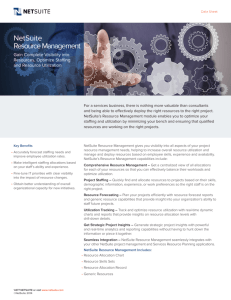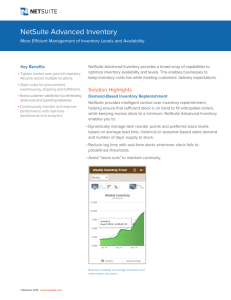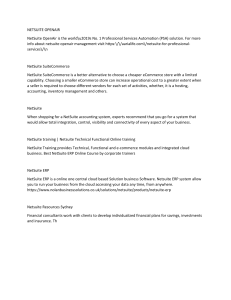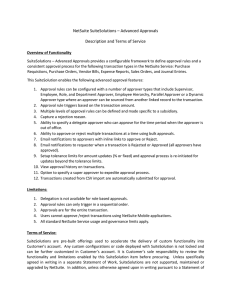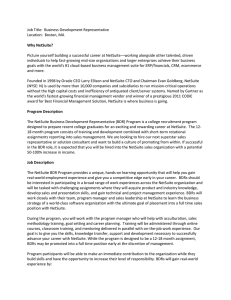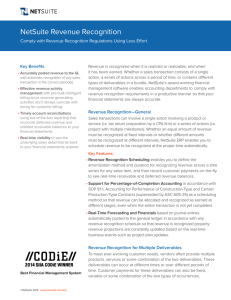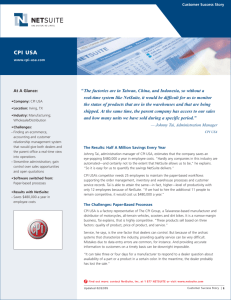NetSuite Work Orders and Assemblies
advertisement
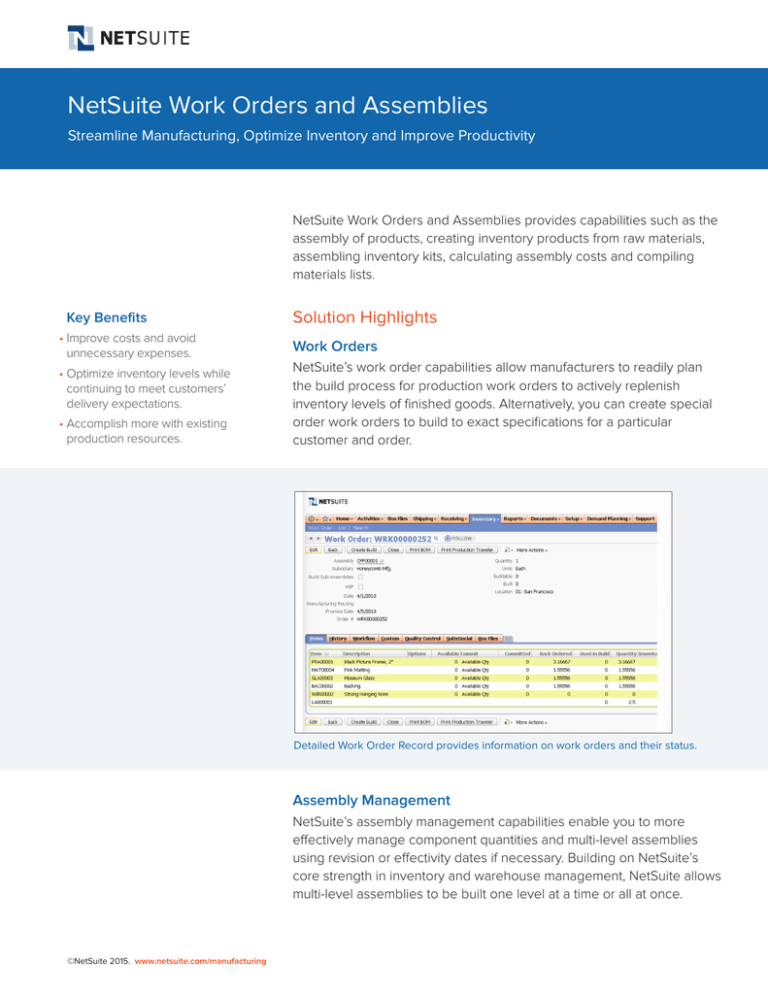
NetSuite Work Orders and Assemblies Streamline Manufacturing, Optimize Inventory and Improve Productivity NetSuite Work Orders and Assemblies provides capabilities such as the assembly of products, creating inventory products from raw materials, assembling inventory kits, calculating assembly costs and compiling materials lists. Key Benefits •Improve costs and avoid unnecessary expenses. •Optimize inventory levels while continuing to meet customers’ delivery expectations. •Accomplish more with existing production resources. Solution Highlights Work Orders NetSuite’s work order capabilities allow manufacturers to readily plan the build process for production work orders to actively replenish inventory levels of finished goods. Alternatively, you can create special order work orders to build to exact specifications for a particular customer and order. Detailed Work Order Record provides information on work orders and their status. Assembly Management NetSuite’s assembly management capabilities enable you to more effectively manage component quantities and multi-level assemblies using revision or effectivity dates if necessary. Building on NetSuite’s core strength in inventory and warehouse management, NetSuite allows multi-level assemblies to be built one level at a time or all at once. ©NetSuite 2015. www.netsuite.com/manufacturing Bill of Materials NetSuite’s bill of materials functionality enables you to define the components required for a single assembly plus all the components required by a particular work order. Assembly instructions can also be included in the printable BOM in PDF format. Since every build process requires a bill of materials that outlines the components required to successfully build finished goods, NetSuite tightly couples BOMs with both assemblies and work orders. Bill of Materials Inquiry provides detailed information across a BOM. Demand-Based Inventory Replenishment NetSuite allows manufacturers to dynamically set re-order points and preferred stock levels for components of assemblies as well as finished goods, based on a variety of factors including average lead time, historical or seasonal sales demand, and number of days from supply to stock. Work orders drive the demand for components as they are completed, thereby automating the replenishment of source materials and components. For companies requiring more sophisticated demand planning capabilities, NetSuite provides advanced functionality in its Demand Planning module. ©NetSuite 2015. www.netsuite.com/manufacturing NetSuite Work Orders and Assemblies 2 Product History Tracking NetSuite gives employees critical inventory information by maintaining a complete history for each product assembly and kit throughout the entire lifecycle. When you sell an assembly, you can show it as a single final product, or as a final product with all its components individually listed and serialised. You can use a variety of build materials, including inventory, non-inventory and service items, to assemble a final product, and use your existing inventory more cost-effectively by undoing builds and reusing their components. The warehouse maintains the complete details of an assembly, leading to more efficient tracking of component levels and improved inventory management. ©NetSuite 2015. www.netsuite.com/manufacturing NetSuite Work Orders and Assemblies 3



